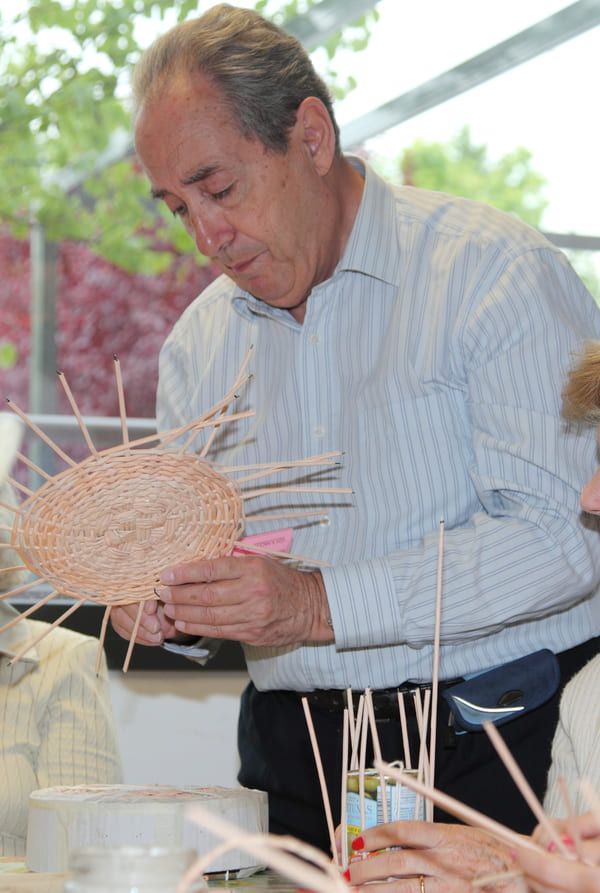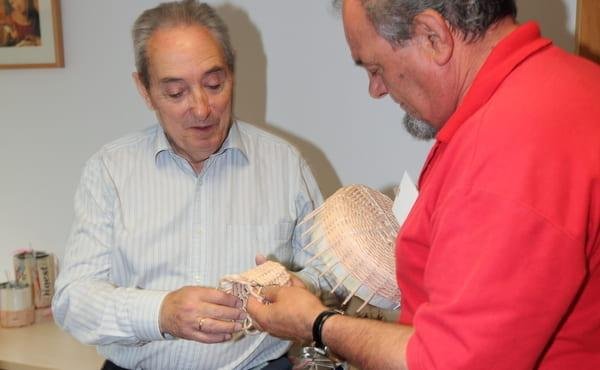For over 20 years he went each day to the Laguna Hospice Care Center in Madrid. He was the most veteran volunteer there. His job was to accompany terminally ill patients as they approached death. He held the hands of over a thousand people as they were reaching the end of their life.
So this is not a sad story of farewell, but a celebration; a story that brings joy and peace. He will always be remembered there, although many patients soon forgot him: because Fermin, besides spending time with the terminally ill also accompanied Alzheimer patients.
He was born 82 years ago in Jaen. Soon after his birth his family moved to Madrid because of the Civil War. He had five children and 13 grandchildren (another is expected to arrive soon). He worked as an accountant. Two months ago, his wife Maria Isabel died due to heart failure. Fermin passed away last Monday after contracting coronavirus
His daughter Lourdes, who is a nurse, says: “He worked as a volunteer for almost two decades, although the past two years he stopped helping out at the hospice when our mother was ill. But after her death last January, he returned to his volunteer work. That’s what he dedicated his life to: assisting the elderly at the hospice.
Two weeks ago she sensed that something was wrong and went to see him at home. Fermin, who could never sit still, didn’t have the strength to do anything. It didn’t seem like her father.

“He was very tired, and was coughing a lot, with a temperature of 99. I decided to stay with him for dinner and also stayed through the night. His fever went up over 100, and at six in the morning he had difficulty breathing so we took him to the hospital.”
“He spent the entire morning in the ICU. I was crying because I could see he was defenseless. He told me ‘I’m very anxious.’ His chest ached. His test came back positive, and they said he had pneumonia.”
In his book entitled The Things They Carried, Tim O’Brian wrote about the objects the American soldiers of the Alpha company in Vietnam carried with them. Things like can openers, pocket knives, matches, chewing gum or cigarettes.
Here are the things his oldest daughter brought her father that Saturday: 1. A cell phone charger; 2. Snacks. 3. A jacket. 4. Reading glasses. 5. And of course, a Bible.
Ana Maria, another volunteer at Laguna and a friend of Fermin’s, used to arrive each day at 2 pm: “He was always there each day from 8 am to 2 pm, and sometimes even longer. Since he was the volunteer who had been there the longest, he helped train other volunteers. He was very friendly; his eyes expressed a lot of affection for the people he was caring for. He was one of the first volunteers at Laguna. Today there are more than 120.
Fermin and another volunteer, Angel Perez, who was a good friend of his, once went by car to visit a sick person who was blind. When Fermin left the room for a moment, that blind man told Angel, “It’s hard to express how much he means to me. When he leaves, I count the days until he returns.” When Fermin came back, Angel asked him why that blind person felt so indebted to him. He answered: “I don’t do anything special. I take him for a walk, I have coffee with him. I take him to the podiatrist, to the bank… Since his children don’t come to see him, I look after him.”
For two days after he entered the hospital, the doctors were still optimistic about Fermin’s chances. His daughter says: “On Tuesday I called and he didn’t answer. He had trouble managing the cellphone. They decided to stop giving him oxygen. The doctor told us that his condition had worsened, and that he had severe bilateral pneumonia. He spent five days in an induced coma.”
He used to joke a lot. Fermin’s children recall the summer vacations spent camping free on the beach. The automobile trips without air conditioning when they had trouble fitting in the car because their family was so large. “We were like Spain back then,” they say. “We used to like to go fishing on our vacations; he almost always was smiling, even when the lines became tangled.”
“When my mother was sick and dying, he told us, ‘I only ask God that I don’t rebel.’ And he never did.”
The burial took place last Tuesday, in a site alongside his wife. His son Carlos lives in Brussels and couldn’t be there. Neither could his son Fermin, who lives in Valencia. His daughter Paloma lives even further away, in Louisiana. The quarantine restrictions only permitted his daughters Lourdes and Isabel and her husband, Jose Alberto, to attend, along with Ricardo, an intimate friend. The four stood at least six feet away from each other. There were no embraces.
The relatives and friends tell us that he was a wise man. With a wisdom that is no longer easy to find.
In her final phone conversation with her father in the hospital, Lourdes told him:
“I love you very much.”
The man who had accompanied more than a thousand sick persons at their death, answered her with two words:
“I know.”
